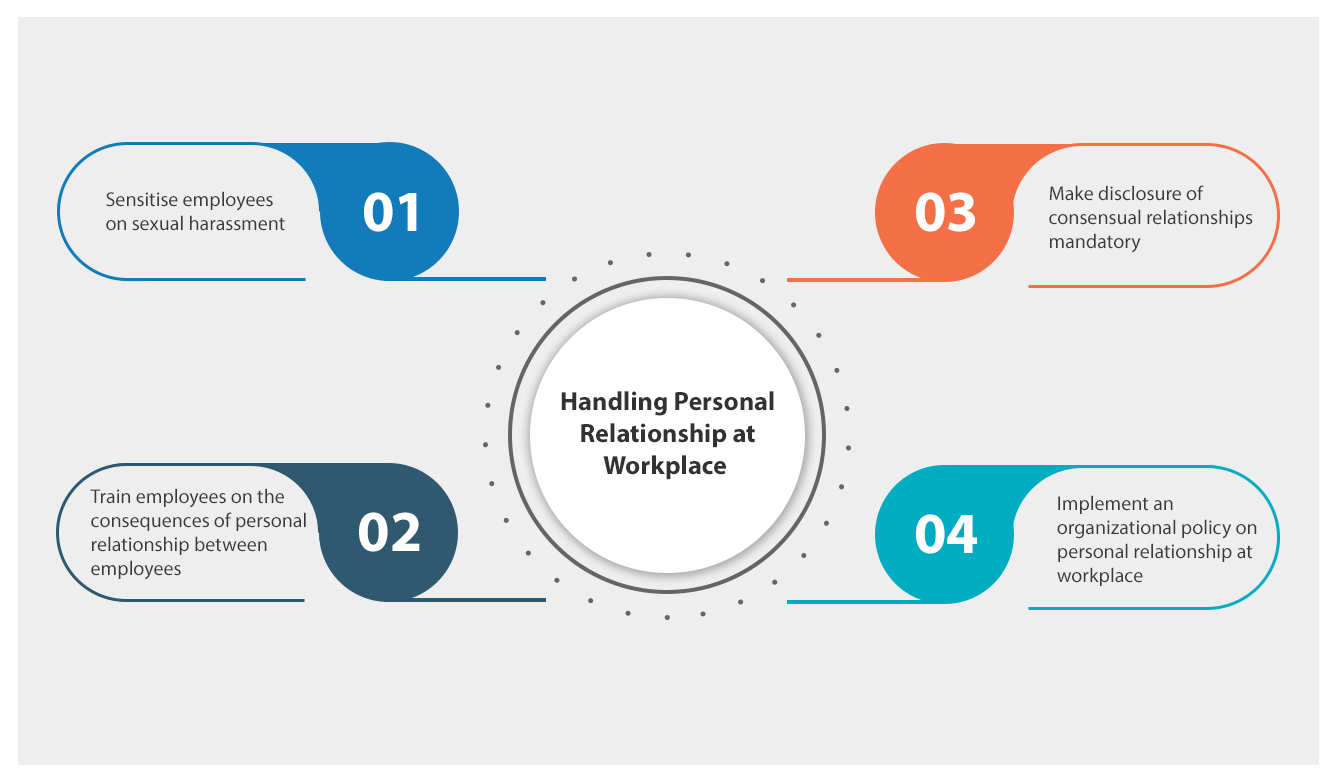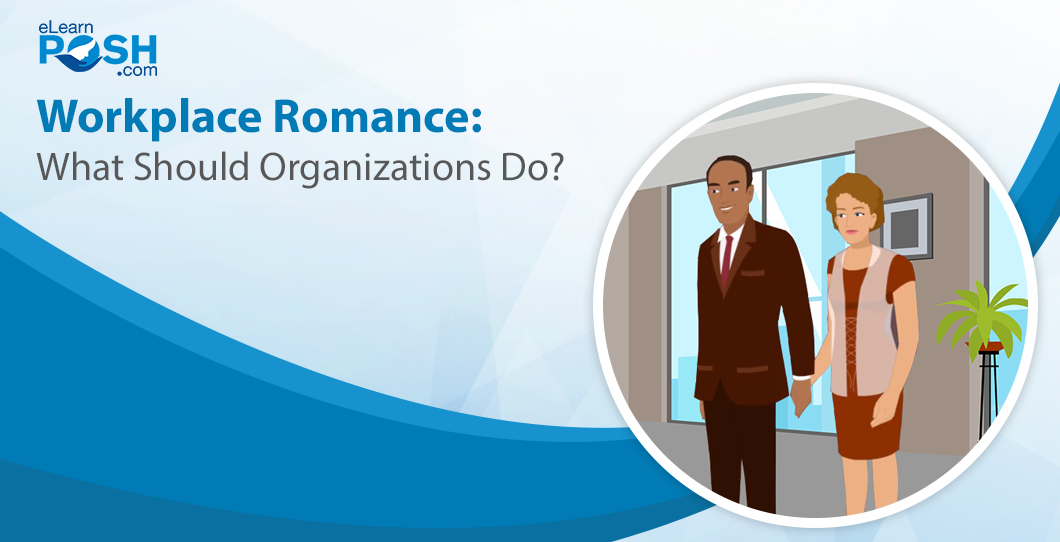Workplace Romance and its Consequences
Employees spend majority of their working hours at workplace with their colleagues. It is completely natural for two people interacting with each other on a daily basis to fall in love. Lots of people love to take the relationship with their co-worker forward too. While nothing looks bad when looking at it from a distance, management may frown up on personal relationships at workplace because of its consequences.
What if two people in a manager-subordinate relationship start dating which results in favouritism? What if the relationship between peers become a distraction for other employees and make them uncomfortable? There are several reasons for personal relationships to go wrong. Organizations receive multiple sexual harassment complaints, where complainant had to face retaliation from the respondent for ending a previously consensual relationship.
Click here to know how workplace romance can become a reason for sexual harassment.
How can organizations handle workplace romance?
Continue reading this blog to know how organizations can handle workplace romances to make sure that it does not result in sexual harassment complaints.

Sensitisation on the topic of sexual harassment is the first step. Offenders try to bail out from sexual harassment complaints with the excuse that they were unaware of the impact of their behaviour. An employer, for this reason, should deploy measures to increase awareness about what constitutes sexual harassment, what is acceptable in workplace and what is not, and the penalty associated with the offence. Mandatory and periodic training is the most effective measure to increase awareness.
The training should also include the consequences of workplace romance between employees, the responsibilities of employees to prevent any negative incidents and the organization’s stand on it. Supervisors and managers should be additionally trained on how to handle complaints on sexual harassment and what actions they can take in preventing unfortunate incidents.
Another step employer can take is to mandate the disclosure of consensual relationships. Make changes to the system in such a way that the employees can report about it in strict confidence. Give them options on who they can report it to. Not all employees will be comfortable in reporting to one person.
Sensitise the employees and inform them that this is done to protect their rights as well as the organization’s. While this is the ideal thing to do, not everyone is comfortable to turn up and report their relationship with the co-worker. However, if the management gets to know about relationship among employees, designated person can inquire about it and take necessary actions, for example, move a party from the team in a way that the relationship does not affect their jobs.
Mandatory disclosure of consensual relationships can be included in the organization’s policy on Prevention of Sexual Harassment (POSH). The organization can even introduce a separate policy on personal relationships and workplace romance. Here are a few other clauses that organizations can consider including in the policy to handle workplace romance:
- An employee, if interested in a co-worker, can respectfully inform the second party without causing any discomfort. They should refrain from continuously pursuing the second party for this purpose.
- Two employees in a relationship should not use office resources or property to further their relationship nor should they engage in intimate or affectionate behaviour during work hours or while in office premises.
- If a relationship ends, this should not create a hostile work environment for themselves nor the others at work. The end of the relationship should be reported to the designated person.
- If customers, vendors or any non-employee, who has a business relationship with the organization, approaches the employees requesting for dates or behaving in sexually advanced or offensive ways, it should be reported to the designated person, regardless of whether the behaviour was welcomed or not.
- Designated person should document this information and should maintain utmost confidentiality while handling workplace romances.
While these are some suggested clauses, each organization’s environment is different and hence not every clause fits every organization. Management should thoroughly think through while drafting a policy on personal relationship and workplace dating.
One important point to be noted is that although a complete or partial ban (ban on relationship between supervisor or managers and subordinates) on workplace relationships is an option, it is not very practical. This can result in employees continuing their relationships in secret. The organization will still be held liable if things go wrong.
Click here to watch our video on Hostile Work Environment.
Finally, although, dating and personal relationship are personal affairs and the employees have complete freedom with their lives, workplaces romances impact the organizations and the employees in several ways. The management and employees are equally responsible to create a workplace which is comfortable for everyone. While policies and sensitisations are the responsibilities of the employer, employees displaying responsible behaviour is also equally important.




Leave a Reply